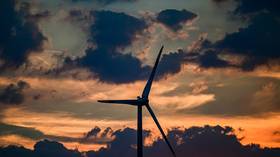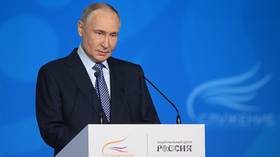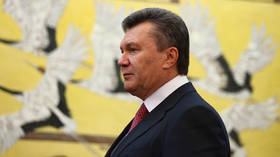German energy giant explains ‘paradoxical’ move on renewables

The ongoing energy crisis in Germany has pressured a local power provider to tear down several wind turbines to make way for the expansion of an open-pit coal mine. The “paradoxical” decision runs counter to the country’s green policies. With one turbine already down, regional authorities have urged energy company RWE to reverse its plans to remove two more.
“We realize this comes across as paradoxical,” Guido Steffen, a spokesperson for RWE, acknowledged, as quoted by The Guardian newspaper.
“But that is as matters stand,” he added.
Steffen pointed out that rebuilding the turbines so that the mine could expand was part of the original agreement that allowed the wind farm to be constructed in the first place in 2001.
Put into operation more than twenty years ago, the Keyenberg wind park in North Rhine-Westphalia had a total of eight turbines and is situated less than a kilometer (half a mile) away from the edge of the Garzweiler surface mine.
One of the turbines was already torn down last week, with the same fate awaiting two more over the course of 2023.
According to the wind farm operator, Energiekontor, the remaining five aging turbines could also be gone by the end of next year, with their operational permit nearing its expiration date.
After taking over the reins in Berlin in December 2021, Olaf Scholz’s coalition government presented an ambitious program foreseeing a transition away from fossil fuels to renewable sources of energy.
However, these plans were effectively put on hold following the start of Russia’s military campaign in Ukraine, which saw gas prices skyrocket due in part to the sanctions imposed on Moscow. The situation was further compounded in early September when Russia stopped gas supplies to Germany via the Nord Stream 1 pipeline, which was later damaged by an explosion.
In a bid to ensure the country’s energy security, in late September authorities in Berlin ordered that idled brown coal mines could be resurrected. The phasing out of coal-fired power plants was also postponed until March 2024.
However, North-Rhine Westphalia’s ministry for economic and energy affairs on Monday still called on RWE to reverse its plans to dismantle the wind farm.
“In the current situation, all potential for the use of renewable energy should be exhausted as much as possible and existing turbines should be in operation for as long as possible,” officials argued.














